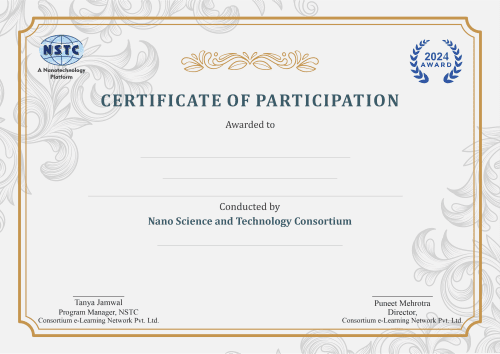
Writing for Impact: Enhancing Medical Communication in the Digital Age
Communicate to Influence: Mastering Medical Writing in the Digital Era
“Writing for Impact: Enhancing Medical Communication in the Digital Age” is a 3 days intensive workshop that focuses on the crucial skills of writing and presenting medical information clearly and persuasively. The workshop covers a range of topics, from basic medical writing principles to advanced digital communication strategies. Participants will learn how to tailor content for various digital platforms, including social media, blogs, and professional medical websites.
Aim: This workshop is designed to empower participants with the skills to craft impactful medical communications, leveraging digital platforms to reach and engage audiences effectively. It aims to enhance the clarity, accuracy, and effectiveness of health information dissemination, preparing participants to become leaders in medical communication.
- Develop a comprehensive understanding of medical writing as a profession and the key roles and responsibilities of a medical writer
- Master the art of conducting efficient literature reviews, critically appraising scientific papers, and extracting relevant information for medical writing projects
- Enhance scientific writing skills to produce clear, concise, and well-structured documents for different audiences and purposes
- Acquire advanced skills in crafting research articles, comprehensive review articles, and regulatory documents, adhering to industry standards and guidelines
- Hone data presentation and visualization techniques to effectively communicate complex scientific information.
What you will learn?
Module 1: Essential Skills for Medical Writing
Session 1: Introduction to Medical Writing as a Profession
- Overview of medical writing career opportunities and industry trends
- Roles and responsibilities of a medical writer in different sectors (pharmaceutical, CROs, medical communication agencies)
- Key skills and competencies required for success in medical writing jobs
Session 2: Drug development and key deliverable documents in Medical Writing
- Introduction to drug development (from Basic Research to FDA Approved Post-Marketing Surveillance)
- Drug regulation
- Key deliverables in medical communications (Literature Search, Abstracts, Manuscripts, Slide decks, Infographics, Plain language summaries)
- Role of Medical Writers in Medical Congress
- Publication ethics and guidelines to follow (ICMJEE, COPE, ISMPP, GPP 2022, CRediT)
- The EQUATOR network
Session 3: Mastering Scientific Literature Review
- Efficient searching and retrieval of scientific literature using databases and search strategies
- Critical appraisal of scientific papers for relevance and quality
- Extracting and summarizing key information for medical writing projects
- Probable Interview Questions
Module 2: Advanced Medical Writing Skills
Session 1: Stages of a document development including publication planning
- Kick-off meeting preparation
- The art of writing a crisp MOM
- Authorship compliance according to ICMJE guidelines
- Draft development through processes of reviewing, QC checks, CE and graphic design (based on requirement)
- Global Approval and Document submission (to either journal, Congress site or Stakeholder based on target audience)
- Datavision overview in publication planning
Session2: Writing Clear and Concise Scientific Documents
- Structure and organization of medical documents for different audiences (Journal, non-medical professionals, health-care professionals, Congress)
- Techniques for clear and coherent scientific writing
- Best practices for improving readability and ensuring logical flow
Session 3: Crafting Research Articles for Publication
- In-depth understanding of research article components (IMRAD format)
- Strategies for writing compelling titles and abstracts
- Effective presentation of methods, results, and discussions
- Probable Interview Questions
Module 3: Enhancing Medical Writing Expertise
Session 1: Writing Comprehensive Review Articles
- Planning and organizing review articles to provide a comprehensive overview of a specific topic
- Techniques for synthesizing and analyzing complex scientific information
- Integrating critical analysis and drawing evidence-based conclusions
Session 2: Data Presentation and Visualization
- Techniques for presenting numerical data effectively using tables, graphs, and figures
- Interpreting and summarizing data for different audiences
- Design principles for creating visually appealing and informative visuals
Session 3: Writing for Lay Audiences and Patient Education
- Adapting complex scientific information for non-experts
- Plain language writing techniques for patient education materials and informed consent documents
- Incorporating patient-centered language and ensuring accessibility
Session 4: Other Deliverables
- Preparing effective slide decks (Congress, MSLs, HCPs, Patients)
- Using infographics and creating a compelling story through an interactive deck (patient journey, HEOR etc)
- Publication notifications
- Probable Interview Questions
Module 4: Miscellaneous
Session 1: Real-World Evidence and its importance in Medical Communications
- Introduction to RWE and its significance
- Difference between Clinical Trial and RWE or PMS
- Introduction to HEOR and its importance in Medical Communications
- How does writing documents for RWE and HEOR studies differ from traditional clinical trial articles
Session 2: Medical Writing Project Management
- Effective project planning and organization for medical writing assignments
- Collaboration and communication strategies with cross-functional teams
- Time management, prioritization, and meeting project deadlines
Session 3: Sample writing test!
Q&A session, Probable Interview Questions
Intended For :
- Undergraduate degree in Life Sciences, Medical Studies, Pharmacy, or related fields.
- Healthcare professionals, including doctors, nurses, and pharmacists.
- Individuals with a background in journalism or communications focusing on healthcare.
Career Supporting Skills


